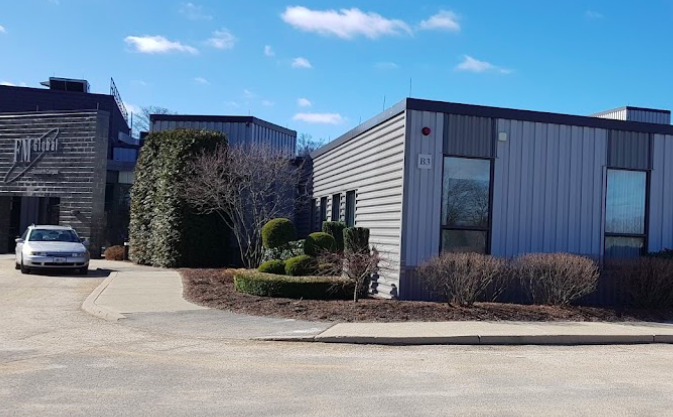GLOCESTER – It was a low turnout for a town-wide financial referendum held Tuesday, August 16, with Glocester voters rejecting a $32.8 million budget that came with a slight tax increase by a vote of 105 to 98.
It is the first time – at least in recent memory – that residents vote down the town’s fiscal plan, and the results mean it’s back to the drawing board for members of the Glocester Town Council, who will now likely have to make some cuts to funding for programs and services. In the event a budget doesn’t pass, officials said this week that both the town charter and state law dictate that finances revert to the prior year’s numbers.
“We don’t want to short departments,” Town Council President William Reichert said of the results this week. “But we’re going to have to make some cuts.”
The results may have been due – at least in part – to misunderstanding of the ballot questions by voters, in a year complicated by delays, and a change to how one of the town’s largest companies is taxed.
Glocester’s PILOT agreement with FM Global – a business that contributed $2.9 million to the town’s revenue last year – expired in 2021.
In 2022, town officials had sought to move the business to an assessment-based tax payment, an accounting adjustment that resulted in what appeared on financial documents to be a 14 percent increase to the levy.
“It appears like ‘oh, wow there’s a 14 percent increase in the amount,'” explained Finance Director Adam Muccino. “But where there was $2.9 million in revenue last year, there’s now a big goose egg.”
In reality, the budget voted down this week marked a levy increase of less than one percent or 20 cents per thousand – not the 14 noted by those trying to evaluate budget documents. According to Reichert, it would have resulted in roughly an additional $100 for the year on the tax bill for a $200,000 home.
The four percent state-mandated cap on yearly increases to any municipal tax levy in Rhode Island meant that in 2022, the adjustment to how FM Global’s contribution was counted would also require Glocester officials to obtain written authorization from Rhode Island Division of Municipal Finance. But the town was unable to secure that approval in time for the usual financial referendum in May, resulting in a delay to the normal budget timeline.
“That would have left a hole in the budget with those taxes,” Reichert said.
The budget vote was instead scheduled for August, amid family vacations and back to school planning, and on social media this week, many residents said they were unaware it was taking place.
Those who did vote last week also rejected a second initiative that Reichert said was intended to allow councilors to further negotiate with FM Global – and likely increase the company’s future contribution to the tax base. Question 3 on the financial referendum sought to give the Town Council authority to determine the company’s tax payment, but was defeated by a vote of 111 to 91.
Muccino noted that the 2022 budget plan had valued FM Global’s property in Glocester at $2.1 million, an assessment he described as “a bit low.” The figure, he said, was used for financial planning this year due to time constraints, with plans to hire a firm for a professional appraisal of the business’s assets – which include thousands of acres of land in Glocester – before heading back to the bargaining table and ultimately re-billing the company.
“We just don’t have the time or expertise,” Reichert said of attempts to arrive at a value of the Reynolds Road business without the help of professional services. “We’ve always had a really good relationship with them. They’ve been a great neighbor.”
But the failure of Question 3 means that – at least for now – councilors don’t have the authority to negotiate.
“The voters have spoken, so our hands are tied,” Reichert said.
On Thursday, August 18, councilors reacted to the outcome of Tuesday’s vote at a meeting that ran until 1 a.m.
“The shock of it all is over,” Muccino said following the meeting. “We’re dealing with it.”
Reichert, who has been involved in town government for more than 26 years, serving his current stint as council president since the death of Julian Forgue in January, said it’s the first time he’s seen a budget fail.
“There were mistakes made all the way around,” he said.
He noted that in Glocester, councilors must navigate often complex multimillion dollar budget issues without the help of a dedicated, full-time town leader.
“I’ve been pushing for a town manager for years,” Reichert said, noting that currently, there’s no one in place to guide how the town’s $32 million budget is spent. “I’ve called it a rudderless ship.”
For now, councilors will have to re-examine a financial plan that was supposed to include elements such as upgrades to communications and school safety, increased personnel and more, in order to make the numbers work. They’ve scheduled a special meeting for Tuesday, August 22 to vote on where to make the cuts.
“We had some things that we were trying to do in the (20)23 budget that may need to be put off to other fiscal years,” Muccino said. “I have recommendations.”
Voters did approve Question #2 on the referendum, authorizing capital spending of $807,276, allowing the CIP budget to move forward.
Reichert said he’s optimistic councilors will be able to work through the budget challenges without losing too much in terms of programs and services.
“It’s not a lot of money,” he said.
Tuesday night’s budget meeting will take place at Glocester Town Hall starting at 7 p.m. The agenda can be found here.
Update: Town Clerk Jean Fecteau tells us that no votes on changes to the budget were made at Tuesday’s meeting.









